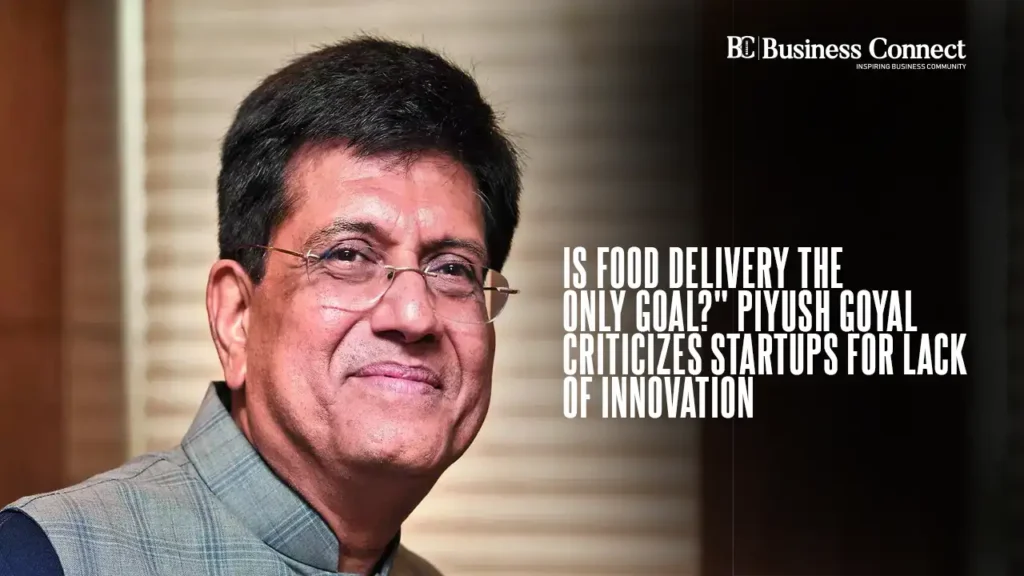Is Food Delivery the Only Goal?” Piyush Goyal Criticizes Startups for Lack of Innovation
Speaking at the second edition of the three-day event held at Bharat Mandapam, Goyal presented a slide titled “India vs. China: The Startup Reality Check,” contrasting India’s startup landscape with that of its eastern neighbor. “What are Indian startups of today? We are focused on food delivery apps, turning unemployed youth into cheap labor so the rich can get their meals without moving out of their homes,” Goyal remarked. “Meanwhile, Chinese startups are working on electric mobility, battery technology, semiconductors, and AI—dominating global ecosystems.”
The minister’s comments come at a time when India proudly holds the title of the world’s third-largest startup hub, boasting over 100 unicorns and 1.57 lakh government-recognized startups. Yet, Goyal argued that scale alone isn’t enough. “Are we going to be happy being delivery boys and girls? Is that the destiny of India?” he asked, emphasizing that the country’s 1,000 deep-tech startups—a figure he called “disturbing”—pale in comparison to the potential for technological leadership.
Goyal’s critique didn’t stop at food delivery. He took aim at startups producing “fancy ice creams” and “gluten-free cookies,” often launched by the children of billionaires. “These are not startups; this is entrepreneurship, this is business,” he said, urging a pivot toward innovations that position India as a global powerhouse rather than a convenience-driven market. “Dukaandari ka hi kaam karna hai ya vishwavyapi aur international scale par Bharat ki pehchaan banani hai?” he added, questioning whether India’s startups aim merely to sell or to make a mark on the world stage.
The remarks have ignited a firestorm of reactions. Aadit Palicha, co-founder of quick-commerce giant Zepto, defended the sector’s contributions, noting that his company employs 1.5 lakh people, contributes over Rs 1,000 crore in taxes annually, and has attracted significant foreign investment—all within three and a half years. “If that isn’t a miracle in Indian innovation, I honestly don’t know what is,” Palicha wrote on LinkedIn. Conversely, Ola founder Bhavish Aggarwal, who leads an electric vehicle startup, echoed Goyal’s call for cutting-edge innovation, aligning with the minister’s vision.
Goyal also highlighted the need for domestic capital to fuel this shift, expressing dismay at young entrepreneurs selling brilliant ideas to foreign firms for as little as Rs 25-50 lakh. He called on unicorns and industry bodies like CII and Nasscom to create a Rs 500 crore fund for deep-tech competitions, a step up from this year’s Rs 70 crore prize pool at Startup Mahakumbh.
As India aspires to become a “Viksit Bharat” by 2047, Goyal’s words serve as both a wake-up call and a challenge. With the government forging trade ties with global leaders like the EU, UK, and US, he stressed that India cannot showcase grocery delivery as its startup legacy. “We need to compete with the best in the world,” he said, leaving the startup community to ponder: Is food delivery the only goal, or can India rise to redefine global innovation?
Add Business Connect magazine to your Google News feed



